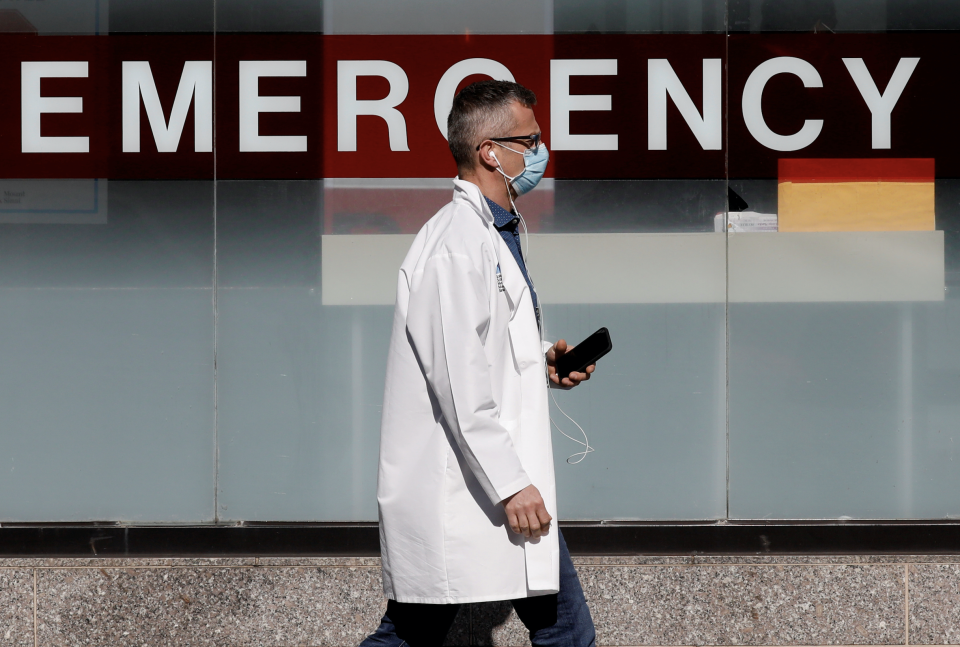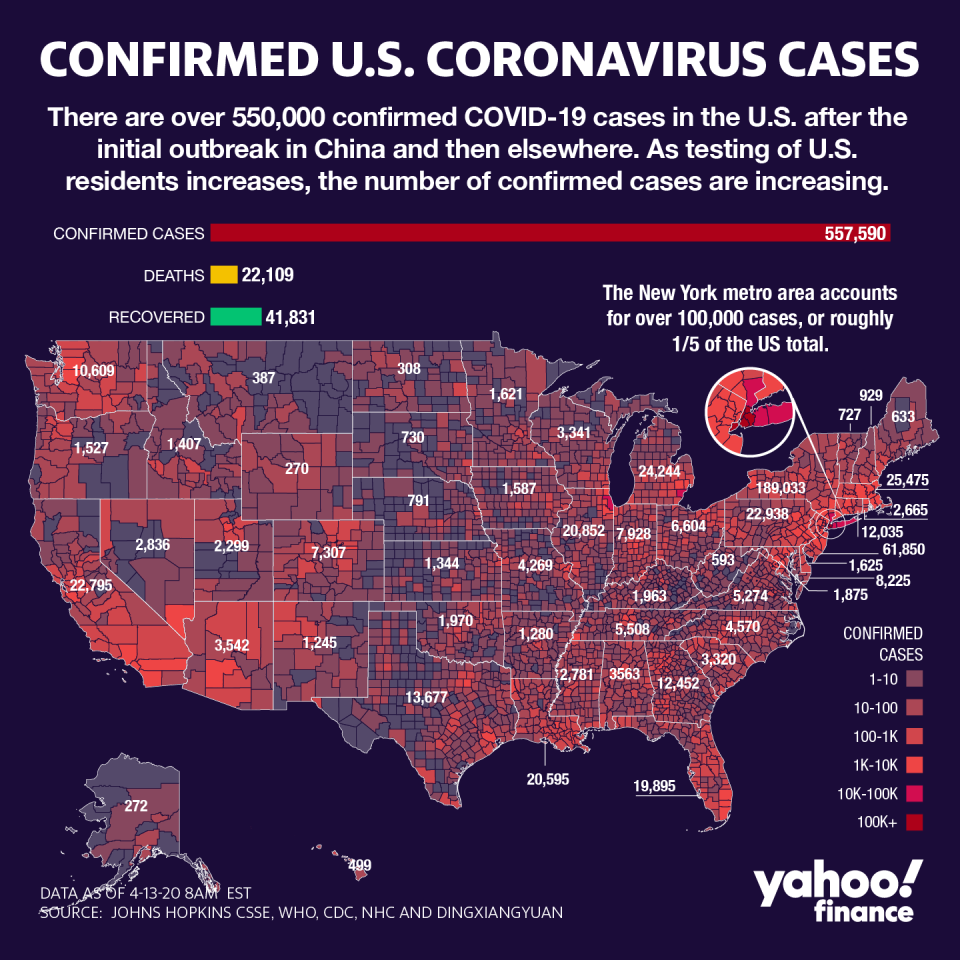Doctor: America's for-profit health system 'just does not work' in a pandemic
The U.S. now has over 550,000 confirmed cases of coronavirus, and various hospitals across the country have struggled with a surge in patients and deaths.
The result, according to Dr. Abdul El-Sayed, an epidemiologist and former health director of the city of Detroit, shows that “a for-profit health care system does not work when we’re dealing with a global pandemic.”
El-Sayed, appearing on Yahoo Finance’s The Ticker (video above), explained that most hospitals are “run as a business” and make the most money “on elective procedures. When you’re facing a global pandemic, you cancel those elective procedures.”

And this can cause a problem for hospitals that rely on funding from elective procedures in order to pay staff and maintain day-to-day operations. Some hospitals are already laying off staff even as coronavirus strains hospital systems.
To try to offset the deficit, the $2 trillion stimulus package passed by Congress at the end of March included $100 billion for hospitals to recover some of the lost revenue. But hospitals have reportedly said that it might not be enough.
“Now we have hospitals that are both battling COVID-19 in a fight for their lives and also battling bankruptcy because they don’t know how they’re going to pay their bills tomorrow,” El-Sayed said.

‘A wake-up call’ for the country
Another issue with the health care system that the coronavirus pandemic highlights, Sayed said, is the fact that 10% of the population, or roughly 28 million people, doesn’t have health insurance at all while another 50% have their health care “behind a paywall because their deductible is so high.”
For those with employer-based health insurance, the major insurance companies have all announced that they would be waiving the costs of coronavirus testing and treatment. Nevertheless, premiums could rise further down the road.
The federal and local governments have taken some steps to address this issue. Eleven states and D.C., which have state-run health care marketplaces, created special enrollment periods to allow residents to sign up for health insurance coverage.
For the remaining 38 states, the Trump administration declined to create a federal special enrollment period, instead opting for promised cash payments to be distributed to hospitals that treat uninsured patients.

El-Sayed asserted it’s “a real problem” because many people would still avoid going to the hospital or seeking medical care because they don't want to get hit with a surprise medical bill.
“That leaves people extremely vulnerable in a moment like this,” he said.
Ultimately, El-Sayed hopes that the COVID-19 pandemic serves as “a wake-up call” for the country.
“If we want a health care system that’s able to rise to the challenges of a pandemic like this, then we have to rebuild it so that we have the ability to guarantee everybody health care, to guarantee access to the basic resources for our frontline staff who are battling this pandemic, and make sure that our hospitals aren’t battling both a pandemic and bankruptcy at the same time,” he said.
Adriana is a reporter and editor for Yahoo Finance. Follow her on Twitter @adrianambells.
READ MORE:
Coronavirus and the U.S. health insurance system is 'a recipe for disaster'
Health insurance industry eyes federal aid amid coronavirus pandemic
ER doctor: Coronavirus treatment is 'an enormous logistical nightmare'
Read the latest financial and business news from Yahoo Finance
Follow Yahoo Finance on Twitter, Facebook, Instagram, Flipboard, SmartNews, LinkedIn, YouTube, and reddit.
